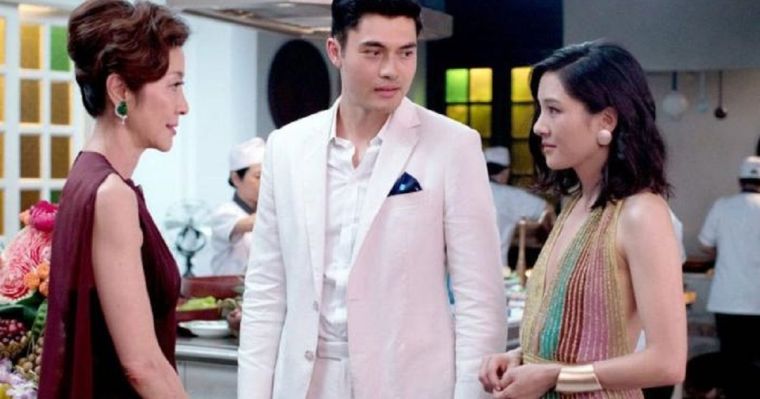2 min to read
Crazy Rich Asians
Henry Golding has captured the gaze of every woman on earth this summer, thanks to the success of Crazy Rich Asians. The movie is probably more important than it is good, but still deserves our attention.
by Zach Saul

Kevin Kwan wrote Crazy Rich Asians to showcase educated Asians in Singapore who were “living their lives with style and taste for generations”, and Nick Young’s (Henry Golding) family estate certainly exemplifies old-money glamour. Rachel Chu (Constance Wu) is taken on an “adventure East” with her boyfriend to meet his family and dragged through the gauntlet of crazy mothers, and jealous friends. Rachel is confronted with Nick’s elusiveness about ten minutes into the movie when she steps onto the plane and into the first class lounge with a puzzled look on her face wondering how they can afford the luxuries of first class. Rachel spends the first act of Crazy Rich Asians in awe of the beautiful mansions, private jets, and privilege that Nick’s family enjoys. However, once it becomes clear that all the other women in their family circle are jealous that she snatched up Nick – the shenanigans begin. Godfather-esque dead fish, passive aggressive comments, and private investigators take their toll on Rachel’s patience and force Nick to choose between true love and family.
Rachel and Nick’s romance is heartfelt and genuine, but the real meat on the bone in Crazy Rich Asians are in the exchanges with Nick’s mother Eleanor (Michelle Yeoh). In a series of attacks against Rachel she explains that pursuing one’s passion (a deeply American idea) is at odds with her family’s traditions of building things that last. It’s an age old argument between generations that plays out extremely effectively in Crazy Rich Asians. Jon Chu does an excellent job in these moments leaving some space for Rachel and even Nick to consider the importance of Eleanor’s traditionalist sentiments. Rachel’s eventual decision to refuse to make Nick’s choice between her and her mother mutually exclusive reflected an understanding of Eleanor’s importance to Nick’s life.
Bill Simmons referred to the movie as the Asian My Big Fat Greek Wedding, and I can certainly understand the comparison. While this movie lacks to comedic timelessness of My Big Fat Greek Wedding it shares a fascination with understanding family oligarchs in a nuanced way. Having worlds collide is a really difficult exercise for young people still filling out the sides of their identity, and like it or not, family is an immovable force in successful adult relationships.
The Good: Crazy Rich Asians can stand up on artistic merit, but it’s importance for Asians in Hollywood cannot be understated. The movie featured an all-Asian cast and a lead (Henry Golding) who had never appeared in a movie before (or had any acting credits to his name) and ruled the summer box office. Well done, Jon Chu. Kevin Kwan’s book (on which the movie is based) wanted to show Asian people represented in a less stereotypical way. Instead of characters owning Chinese take out joints in Brooklyn, they are brilliant economists, business moguls, fashion designers, and powerful lawyers.
The Bad: Crazy Rich Asians if we’re being honest is probably more important than it is good. It’s two leads are incredibly sweet, but admittedly underdeveloped characters. If you forget for a second that the characters in this movie were Asian and I told you this was the newest Nicholas Sparks movie, it wouldn’t seem far-fetched at all.
| Movie Details | |||||
|---|---|---|---|---|---|
| Studio: | Warner Bros. | ||||
| Director: | Jon Chu | ||||
| Written By: | Kevin Kwan | ||||
| Staring: | Henry Golding | Constance Wu | Michelle Yeoh | Ken Jeong | Jimmy O. Yang |

Comments